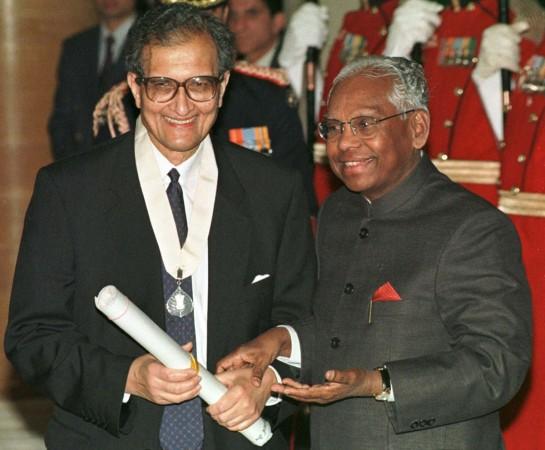
Central Board of Film Certification chief Pahlaj Nihalani on Wednesday, July 13, defended the board's decision to bleep four words – "Cow", "Hindu India", "Hindutva" and "Gujarat" – in the documentary titled Argumentative Indian on renowned economist Amartya Sen. Nihalani cited guidelines of the Cinematograph Act, 1952 to defend CBFC's objections, which came under widespread criticism.
However, filmmaker Suman Ghosh refused to accept Nihalani's justification, saying that the guidelines are subjective and that any dialogue can be censored citing them.
Censor Board strikes again: Wants Amartya Sen to be beeped when he says 'Gujarat', 'cow'
"All CBFC members are given the authority to interpret the guidelines their way. There is some higher authority who has instructed them to function this way. The entire system has left me frustrated... The voice of opposition is needed for a functional democracy," Ghosh told the Times of India.
Amartya Sen too was astonished at the censor board's decision and told NDTV, "It shows the country is in the hands of an authoritarian regime pursuing its own view of what is good for the country."
Argumentative Indian has been filmed over 15 years and features the Nobel laureate in conversation with economist Kaushik Basu, India's former chief economic adviser and one of Sen's students.

CBFC member Mala Dutta Ghosh added: "We are public servants and have to abide by guidelines. All our recommendations are based on guidelines."
She said that although the guideline is open to interpretation, each board member is empowered to give their views independently. "It's true guidelines can be interpreted differently. But as public servants, we give our views based on good faith. Under Section 5B of the Cinematograph Act, each board member is empowered to give his/her view independently. We have to substantiate our views by matching them with the guidelines," she added.








